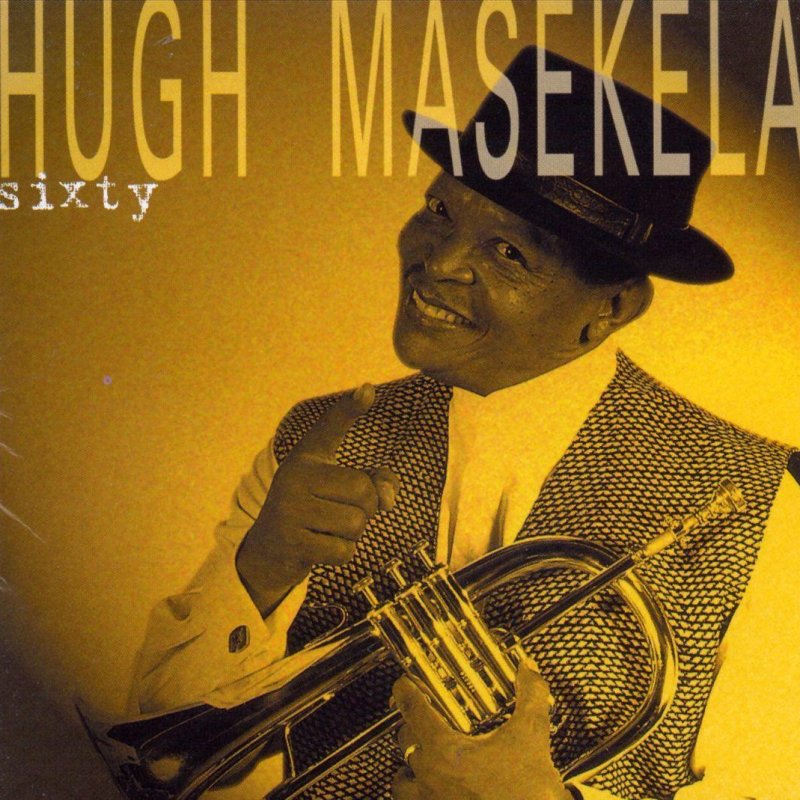Originally recorded for Masekela's album, You Told Your Mama Not to Worry which the streaming music algorithm seems to have lost , it was an instant concert staple for Makeba which she re-recorded for 's Welela. This funky blues takes as its model the Afrobeat music Fela was then bringing to life in Lagos, and its conceit of a traveling unified sound the lyrics name-check numerous western and southern African countries from the Nigerian bandleader's notions on Pan-Africanism. Retrieved 13 July Because the post-bop played by the Epistles — featuring two future giants, the year-old Masekela on trumpet and Dollar Brand soon to be Abdullah Ibrahim on piano, as well as alto Kippie Moeketsi, trombonist Jonas Gwangwa, bassist Johnny Gertze, and drummer Makaya Ntshako — locked into its swing like the finest Americans of the time. Adam Greenberg of Allmusic stated "Presumably to commemorate his 60th birthday, Hugh Masekela released an album of primarily African works. 
| Uploader: | Milmaran |
| Date Added: | 23 January 2009 |
| File Size: | 16.49 Mb |
| Operating Systems: | Windows NT/2000/XP/2003/2003/7/8/10 MacOS 10/X |
| Downloads: | 35851 |
| Price: | Free* [*Free Regsitration Required] |
Articles with short description Articles with hAudio microformats Track listings with input errors Official website not in Wikidata. Retrieved 30 May This funky blues takes as its model the Afrobeat music Fela was then bringing to life in Lagos, and its conceit of a traveling unified sound the lyrics name-check numerous western and southern African countries from the Nigerian bandleader's notions on Pan-Africanism. For this spooky, echo-heavy version recorded in the folk-rock style of the era, Masekela added a few spare lines and played a solo counterpoint to his soon-to-be-wife's vocal and the acoustic guitar.
But when revisiting the song on the occasion of his 60 th birthday, it had a party-style gallop and a great vocal courtesy of the incomparable Thandiswa Mazwai.
Remi KabakaHugh Masekela. His life was filled with deep musical investigations and global cultural celebrations — both of which he pursued throughout an endlessly successful and inventive plus-year career.
Their self-titled album kicked off a distribution deal that Hugh's Chisa Records had signed with one of the most popular black-owned businesses on the planet, Motown. Grazing in the Grass The version on Hopea well-received career-spanning live album recorded at Washington, D. Nothing, though, was as influential to Masekela's music as the plight of his homeland, which he engaged with as an artist, promoted as an ambassador, protested as an activist and documented as a kind of folk sage.
Hugh Masekela - Thanayi Hugh Masekela- Thanayi Music Video | MetroLyrics
One of Masekela's best-known and most charged anti-Apartheid anthems was written as a response to, and as direct documentation of, the Soweto Uprising, which was set off by the government instilling Afrikaans as the official school language of the black townships. Letta MbuluCaiphus Semenya.
Masekela's engagement with synthesizers in the '80s plugged directly into South Africa's healthy dance music scene, which, with the rise of kwaito in the early '90s, became fully integrated into the sound the townships and sowed the seeds for Mzansi's immense and diverse contemporary house scene. Chris Wodskou of Exclaim!

After that, it moves on through a number of traditional songs and trips down memory lane The band did maekela last.
January 24, Retrieved 16 May Long ready to play the wise elder passing the torch, Masekela lent his voice and trumpet to one of South Africa's biggest house music artists for a typically humanist statement.
Legendary trumpeter and anti-apartheid activist Hugh Masekela, who died this week, photographed during an interview on October 27, in Johannesburg, South Africa. The 15 tracks below are an overview to this arc, touching upon all of these threads.
Hugh Masekela - Thanayi Lyrics
With its organ and vocal choir out front, and Masekela stringing together ebullient horn lines, this was South African gospel music thanayii the best order, almost willing imminent freedom into being. Afro jazz, Summer of Love, Black Power, Pan-Africanism, the rise of disco and club culture, digital recording — all were internalized and used to his devices.

The swirling guitars and Masekela-led brass drive a steady groove. Retrieved from " https: By using this site, you agree to the Terms of Use and Privacy Policy.
As the anti-Apartheid movement swelled in the late '80s, partially focusing on the release of Nelson Mandela, who'd been jailed sinceMasekela wrote an anthem to demand Madiba's release, then set about playing it throughout Paul Simon 's massive Graceland world tour.
Carl Craig, one of Detroit techno's pre-eminent producers and one deeply familiar with both jazz and South African music history decided to pay Masekela forward, with a remix of Hugh's Afro-Disco classic, which got love in many clubs and still smokes.
The spirit of the times called for more than mere grazing, and following his chart success, Masekela's music embraced an explicit thaayi of his South African roots and pan-African ideas. Years before she recorded it on her second American studio album, The Many Voices of Side one, song one was Hugh's lone writing contribution. If Masekela's rapping on the track was a misstep it wasits ingredients — Hugh's trumpet playing against the Fairlight and a bass-synth, creating a kind of proto-house or electro makossa — were not dissimilar to what contemporaries like Miles Davis and Manu Dibango were doing.
Despite or due to any such similarities that may arise, this is international pop huugh its best. Sixty is a studio album by South African jazz maekela Hugh Masekela.
The story of exploited migrants toiling in Johannesburg's gold mines, the closing track off Masekela's classic album, I Am Not Afraidhas not only become one of the artist's most-beloved political standards, but a union thanayo as well.

Комментариев нет:
Отправить комментарий